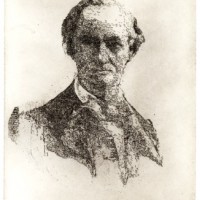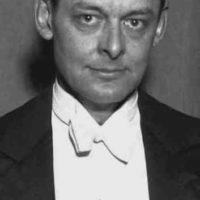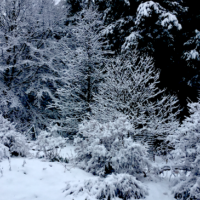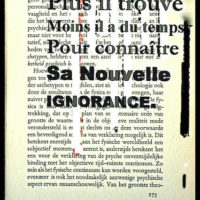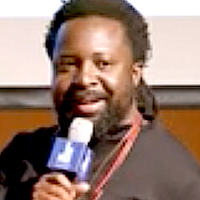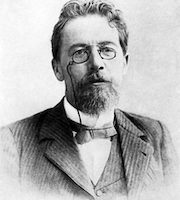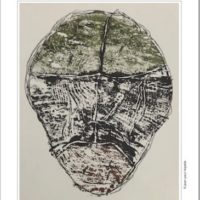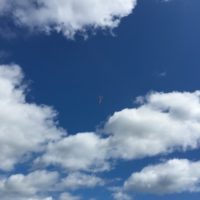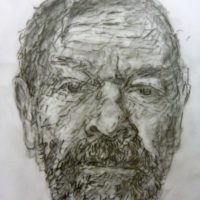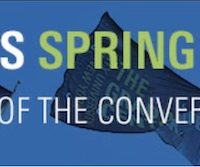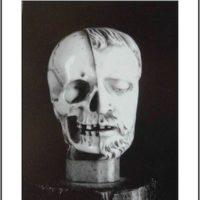A friend who lives deep in the French countryside was listening to the radio the other day when she heard a poem by Baudelaire, called “Avril.” She spent the entire day trying to trace it and finally emailed Radio France to ask where she could read it. The answer came. But there’s a surprising kicker.
GC CUNY Keeps the Conversation Going:
Racism and Democracy; also biographer
David Nasaw on the moguls Joseph P. Kennedy,
Andrew Carnegie, and William Randolph Hearst
While events are postponed at The Graduate Center of the City University of New York in the heart of Manhattan, videos of recent public programs from its archive will be featured here for your enjoyment. The videos offer illuminating discussions in two main categories: insights into current events and conversations with leading writers and artists.
Just an Arbitrary Notion
for a useful meaning
no starched collar
inked his lines
nor the uptight
narrowness
of the familiar
bank clerk
From a Diary #2
Heavy snow took down the internet, which came back up just now . . . will the power lines go down ? . . . the snow is still falling . . . fingers crossed . . . beautiful to look at though, and the two grandkids will go sledding . . . hear from a friend in Berlin that the sun is out there . . . and so are the sun worshippers . . . plenty of ambulance sirens too . . . no sun here, much less worshippers . . . as to sirens, I haven’t heard one in four weeks . . . glad of that . . . even in normal times they were a regular sound track back in the city . . .
Shared Thoughts Rethought
The grand pyannah, glorious
but somewhat out of tune,
awaits my amateur tickling.
It‘s a great distraction.
Tell me you’re distracted,
mowing down the pages
of your rare old books.
Coping With the Shitstorm #5
David Erdos reads Poem 35—about selfishness and gaining a perspective on it in current conditions—from his forthcoming book, ‘The Corona Collection: 2020 Vision.’
GC CUNY Keeps the Conversation Going:
Workers & Wages with Paul Krugman;
Marlon James on Fantasy Fiction
Why has it been so hard for American workers to make a living? Why haven’t the economy’s gains of the recent past meant higher wages for everyone? This week, as inequality and job insecurity are intensified by the Covid-19 pandemic, take look at “Workers and Wages in America Today” for a long- term perspective. Also, for a change of pace, enjoy a great discussion with Man Booker Prize-winner Marlon James about his venture into fantasy fiction.
From a Diary . . .
I’ve been skimming through a complete collection of Chekhov’s stories. There’s lotsa chaff—small anecdotes published in newspapers from early days that don’t do much and weren’t intended for the ages. But then you come upon “an unpleasantness,” a long story from a later period that stands up like an erection. It’s about a doctor who runs […]
GC CUNY Keeps the Conversation Going:
Economists Emmanuel Saez & Gabriel Zucman;
authors Suketu Mehta & Gary Shteyngart
Economists Emmanuel Saez and Gabriel Zucman talk about how the rich dodge taxes and how to make them pay. And authors Suketu Mehta and zary Shteyngart discuss how American culture is constantly being remade by immigrants.
There Are Other Nightmares
A friend writes from Brooklyn: “I’ll spare you our preparations for Passover, which begins tonight. It seems weird to celebrate God deciding a plague should pass over the Jews when we’re sitting around with the coronavirus on our heads.” I agree. His comment called to mind my own thoughts about a different observance.
Coping With the Shitstorm #3
A friend writes from the French countryside: The invisible threat casts a shadow over an otherwise idyllic springtime. When normally one’s own sorrows are cast aside, albeit temporarily, by the blossoming of nature and its infectious sense of hope, this year comes with a malaise which seems to leach all sense of renewal; and so I find myself hesitant in all I do.
Coping With the Shitstorm #2
A friend writes from Berlin: Good news … I received 5000 euros from the city. I could hardly believe it when I looked at my bank account. That will come in handy. Now we simply have to survive. It was very generous to artists who live here, many of whom are wiped out by what has happened. The decisions were made quickly, based simply upon the evidence that an artist truly has been living and working on their art here. It all seems unreal…everything does now.
GC CUNY Keeps the Conversation Going:
Roxane Gay and Katia D. Ulysse
GC Presents: Roxane Gay, a powerful literary voice and one of today’s most-watched cultural critics, joins in a reading and conversation with acclaimed fiction writer Katia D. Ulysse. (Courtesy of GC CUNY’s Public Programs archive.)
Shared Thoughts
The grand pyannah, glorious
but somewhat out of tune,
awaits my amateur tickling.
It‘s a great distraction.
Tell me you’re distracted,
mowing down the pages
of your rare old books.
GC CUNY Keeps the Conversation Going:
Milanovic, Piketty, Stiglitz, and Krugman
While events are postponed at The Graduate Center of the City University of New York in the heart of Manhattan, videos of recent public programs will be featured from its archive for your enjoyment. The videos provide illuminating discussions in two main categories: insights into current events and conversations with leading writers and artists. (Courtesy of GC CUNY’s Public Programs archive.)
Coping with the Shitstorm #1
A friend writes: “At the clinic some of the people asked after me, and the doc said, ‘Well his routine hasn’t altered one minute. Or one millimeter.’ All of them in stitches—and of course it is true. I have been in self-isolation since age 15— so lots of fun seeing the rest deal with it. […]
Artaud for Our Time
“And I told you: no works of art, no language, no words, no thought, nothing. Nothing except a sort of incomprehensible and totally erect stance in the midst of everything in the mind. And don’t expect me to tell you what all this is called, and how many parts it can be divided into; don’t expect me to tell you its weight; or to get back in step and start discussing all this so that I may, without even realizing it, start THINKING.”

